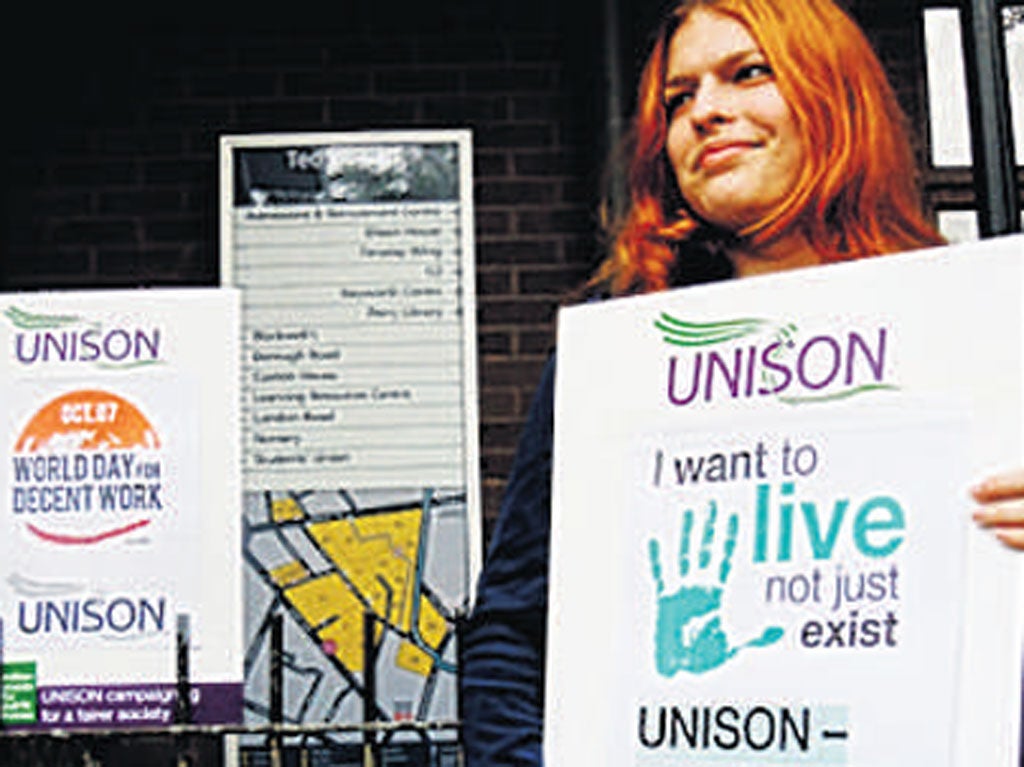Living Wage campaign's success shows politics at its very best
It's people-powered change that helps the poor and unites politicians

Your support helps us to tell the story
From reproductive rights to climate change to Big Tech, The Independent is on the ground when the story is developing. Whether it's investigating the financials of Elon Musk's pro-Trump PAC or producing our latest documentary, 'The A Word', which shines a light on the American women fighting for reproductive rights, we know how important it is to parse out the facts from the messaging.
At such a critical moment in US history, we need reporters on the ground. Your donation allows us to keep sending journalists to speak to both sides of the story.
The Independent is trusted by Americans across the entire political spectrum. And unlike many other quality news outlets, we choose not to lock Americans out of our reporting and analysis with paywalls. We believe quality journalism should be available to everyone, paid for by those who can afford it.
Your support makes all the difference.The campaign to pay public servants in Britain a Living Wage took three considerable strides last week, when the Department for Work and Pensions, the Ministry of Justice, and Cabinet Office all said they were considering introducing it. This is about as lovely a piece of news as Whitehall has produced this year, and if this outbreak of yuletide generosity is in any way related to spirit of Christmas, I'm prepared to reconsider my views on the foppery of organised religion. How did we get here?
Through a decade of campaigning by some of the poorest people in Britain, largely. This column has made no secret of its affection for the community organisers of Citizens UK, and its subsidiary London Citizens. For 10 years, they have brought together churches, mosques, schools, unions, youth groups, synagogues and other institutions of civic society to ask employers for a living wage. To an extraordinary degree, they have succeeded.
Over 10,000 families have been taken out of working poverty by the campaign, which now asks that employers voluntarily pay £8.30 an hour in London, and £7.20 outside. Organisations in the public and private sectors – KPMG, Barclays, the Greater London Authority – have signed up. And this is a policy where everyone is a winner.
So far, there is no evidence the Living Wage suppresses jobs, and in any case, this is something employers are asked to do voluntarily, through a feeling of social obligation. Small businesses, who need to keep wages down so they can control costs, are not forced to participate.
Rather, the experience of the Living Wage campaign is that it transfers money from usually large and wealthy organisations to those who need money most. And in reducing the poverty of those people, it also reduces their dependence on the welfare state, so reducing the burden on the rest of us.
What's not to like? Very little, which is why this policy has gone from the fringes of public debate to the mainstream. Ed Miliband has given speeches on its virtues; Boris Johnson put it in his mayoral manifesto; David Cameron has described it as "an idea whose time has come"; the Lib Dems supported it at the last election; now Iain Duncan Smith's department has given the green light, suggesting that even the Tory right might be amenable to the idea.
This is politics at its best. It's people-powered change that helps the poor, unites politicians, and stirs them to action. I can't think of a better example of why politics is still a noble profession.
Join our commenting forum
Join thought-provoking conversations, follow other Independent readers and see their replies
Comments